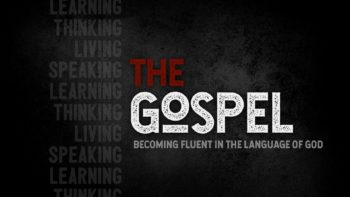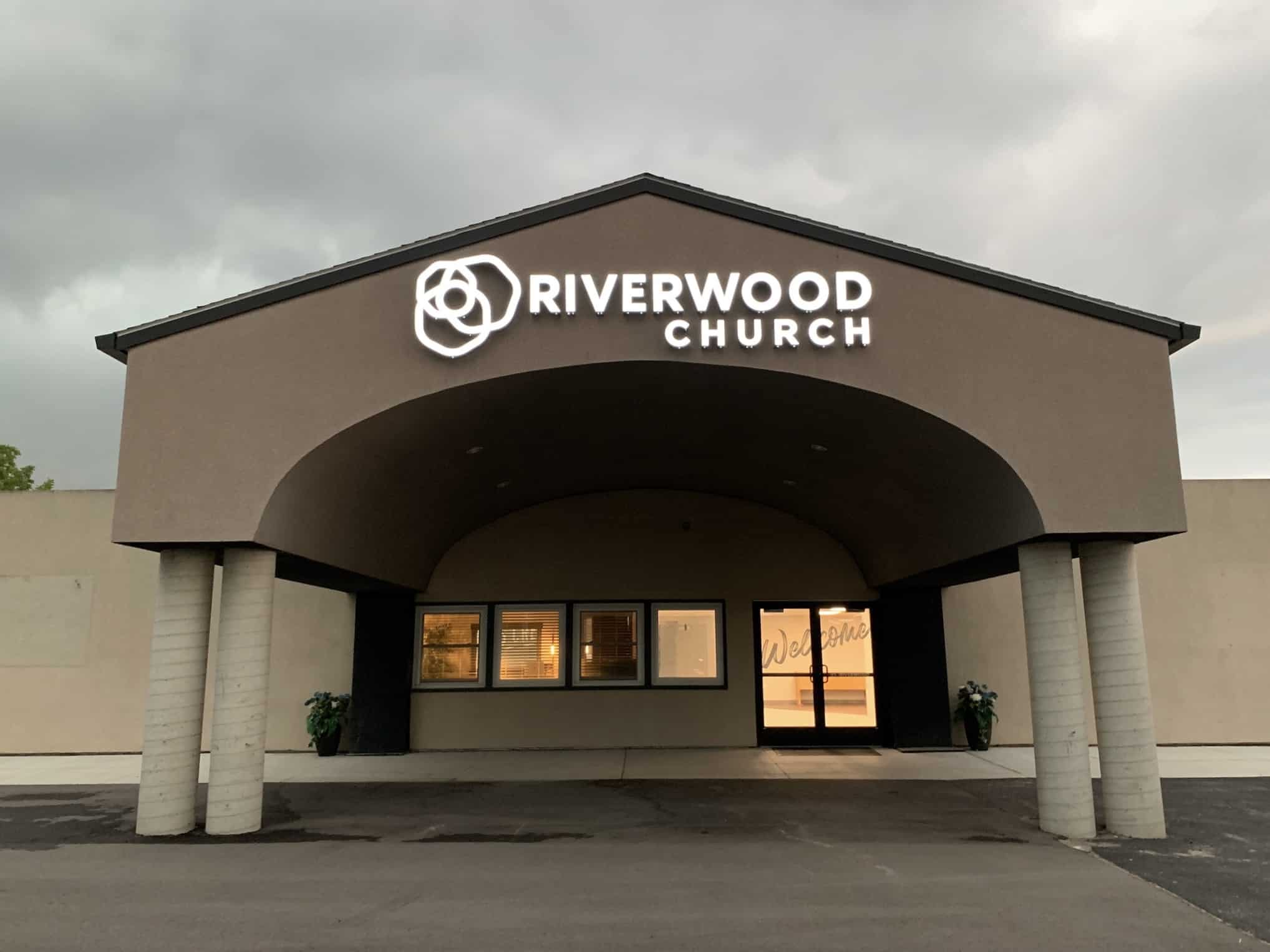
By Erin Bird

This coming Sunday at Riverwood, we will begin a new teaching series simply called "The Gospel." To serve as a companion to this series, we gave out a book entitled Gospel Fluency by Jeff Vanderstelt. (If you missed this past Sunday's Worship Gathering, we will have more books available this Sunday.) As we kick off this new series, I will be teaching through the four basic "elements" of the gospel: Creation, Fall, Redemption, Restoration. (You will read more about these four elements in chapter 4 of Gospel Fluency.) For a deeper insight into these four elements, check out The Explicit Gospel by Matt Chandler. In his book, Chandler calls these four elements "The Gospel in the Air," expounding on these elements for half his book.
But Chandler says the Gospel in the Air is only one vantage point, he also talks about the gospel from a different vantage point he calls "The Gospel on the Ground." Same gospel, different view. The Gospel in the Air is like a macro view of the gospel, but the Gospel on the Ground lets us peer at it closer on the micro level.
Like the Gospel in the Air, Chandler (and his co author, Jared Wilson) says the Gospel on the Ground also has four parts: God, Man, Christ, Response. For the month of February, we are going to look at each of these parts of the Gospel on the Ground here on the blog. I hope that by doing so, I will give you yet a greater understanding of what the gospel is and how it truly changes everything.
So let's get started...
I will probably say this on Sunday, so forgive me if I repeat myself: Oftentimes when a well-meaning Christian tries to share the gospel with someone else, he or she will start by talking about how humanity is sinful. In other words, in the "Gospel on the Ground," they skip God and start with Man.
It's as if they start their theological framework with Genesis 3 which records the sinful rebellion of Adam & Eve. But the Bible doesn't start with Genesis 3, it starts with Genesis 1. And how does Genesis 1 start?
"In the beginning, God..." (Genesis 1:1a)
If the Bible is the story of the gospel, then we must start the gospel where the Bible starts - with the Perfect Holy Unchanging Almighty God.
Which makes sense, if you think about it. Without a Perfect Holy God, there cannot be any such thing as the imperfectness of sin. Sin can only be recognized as being imperfect if there is something (or someone) that is perfect.
So we can't start the gospel with ourselves or our sinfulness. We have to start with God.
Years ago, I signed up with a friend and his son to participate as a team in a long-course triathlon. I was going to do the 1.2 mile swim, my friend was going to bike 56 miles, and his 13-year-old son was going to run the 13.1 mile course. I had never done an open water competitive swim like this, so I was nervous during the whole car ride to the site of the event, nervous during my warm-up swim, and nervous while we waited an extra half-hour for the fog to clear so the race could begin. I was nervous through the entire start!
In some aspects, when it comes to the gospel, we should be nervous at the start. If the gospel starts with a Perfect Holy Unchanging Almighty God, then we should be nervous to come into His presence, far more nervous than I was to dive into open water to swim for the next 30 minutes.
And yet, when we realize the whole gospel story doesn't just start with God, but that God responded to our sinfulness through Christ, then starting with God doesn't only make us nervous, it should also give us comfort. Let me explain...
Right now, think of a sin you regularly struggle with. It could be anger, lust, giving in to temptation, lying, pride, gossiping, just about anything.
Now, imagine you just gave in to your sin - and immediately after, you realize you just sinned against your Perfect Holy Unchanging Almighty Heavenly Father. As this awareness washes over you, you might respond in one of two ways:
1. The first way is to try to hide your sin, or to minimize it. To avoid the nervousness of standing before a Perfect God, you might say to yourself:
We minimize our sin because if we honestly acknowledge our wrongdoing before our Perfect Holy Unchanging Creator, we might get nervous or even petrified with fear that His wrath will come against you. So to eliminate the possibility of crushing nervousness, we callously minimize the sin.
But when we minimize our sin, we aren't starting the gospel with God. We aren't recognizing Him for who He truly is - a Perfect Holy Unchanging Almighty God.
2. The second way to respond to your sin is to beat yourself up. You'll tell yourself things like:
But those words reveal that you think the gospel starts with Man. Your self-talk reveals you think the gospel is about you cleaning up your act to get to God's standard.
But that's NOT where the gospel starts! The gospel does not start with Man, making us work harder to be better. The gospel starts with a Perfect Holy Unchanging Almighty God who created you in His image - which means He deeply loves you. Yes, your sin is offensive to Him, but His love for you is FAR deeper than your sin.
So when you sin, rather than beating yourself up, run to God. Rather than minimize your wrongdoing, confess it fully to God.
To preach the true gospel to yourself, start with your Perfect Holy Unchanging Almighty God who not only saw the sin you just committed, but has already paid for it. And because you know He has revealed His love to you by paying for your sin, you can run to Him, confessing in His outstretched arms, and accept His forgiveness. By starting the gospel with God, you are admitting that you aren't perfect, but you are asking Him to continue to change you and restore within you His image.
Receive Riverwood's "News & Notes" weekly email in your inbox. Submit your email address below and stay in the loop.

We are on a mission to help people love like Jesus loved and live like Jesus lived.
It doesn't matter to us if you:
No matter where you are in your spiritual journey, we want to help you become who God has created you to be.